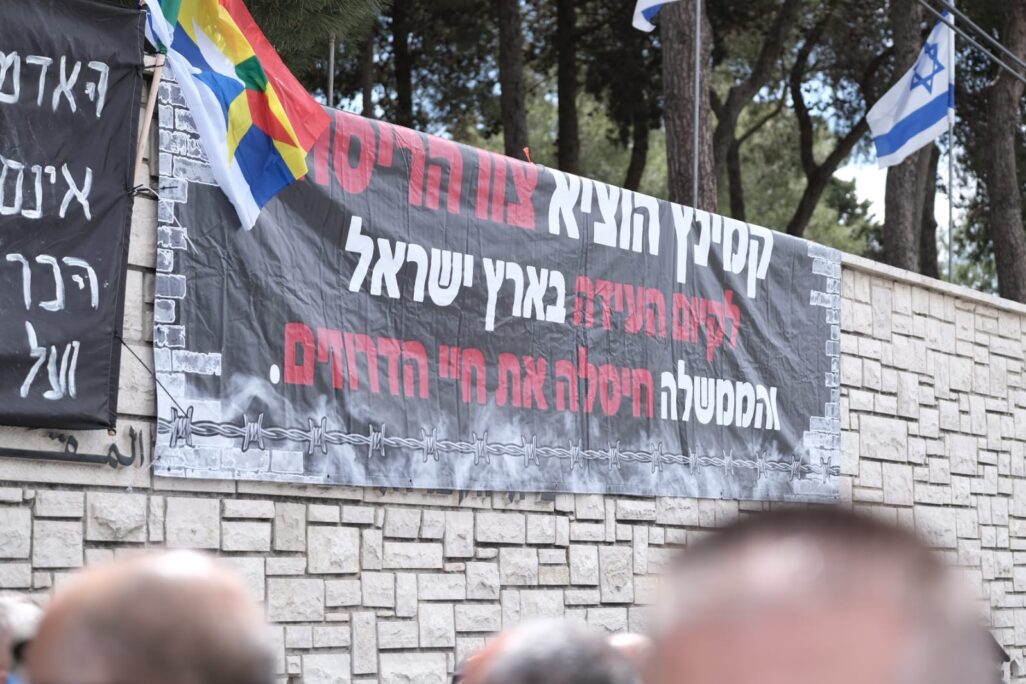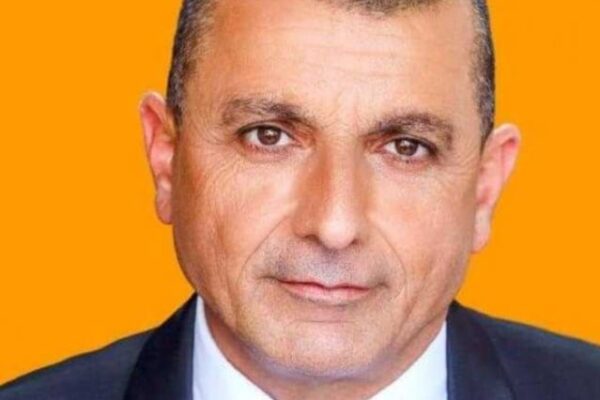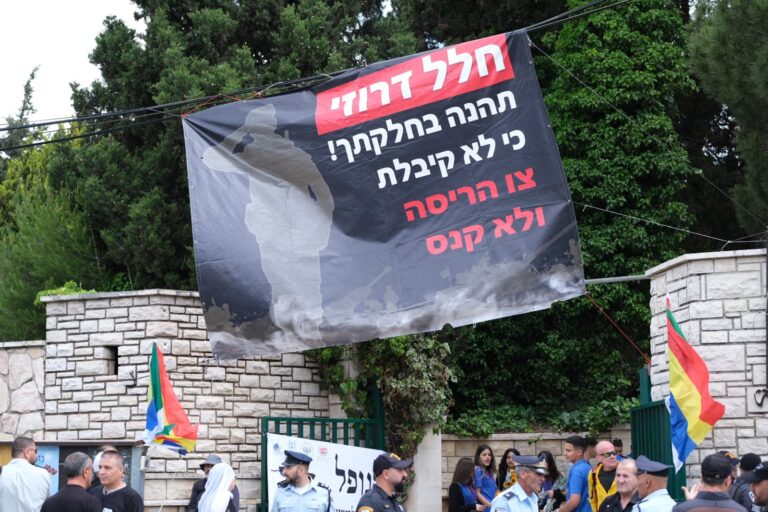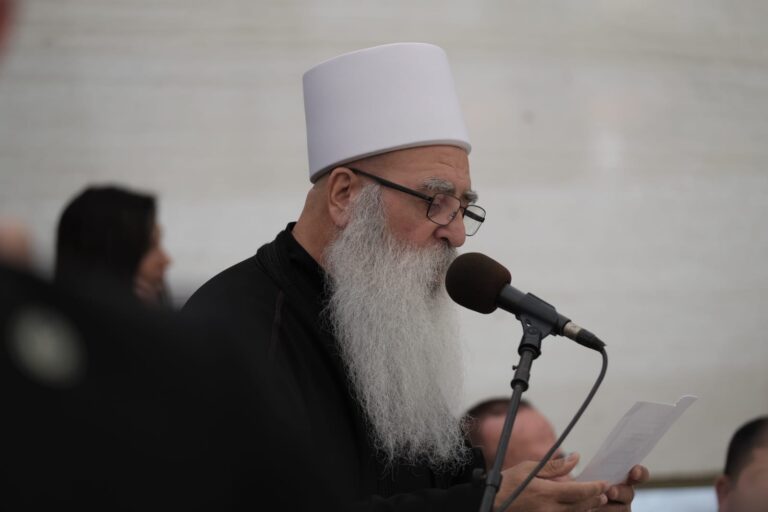
The planned demolition of homes in the northern Druze village of Yarka was halted last month after widespread protest. While these home demolitions were not carried out, the policy of home demolitions threatens to weaken the ties between the state and the Druze community, which is known for its loyalty to Israel and service in the Israeli military.
The government claims that the houses in Yarka set to be demolished were built illegally. Yarka residents say that they have been unable to construct homes according to the regulations, and have been forced into illegal dwellings and “third world” conditions.
“In Yarka there are 28,000 residents and 1,200 unregistered homes that are not even connected to an electrical grid,” Salman Moula, Yarka’s local council chair, told Davar. “People here have to pay fines all the time. We haven’t been able to develop a single construction site for 15 years.”
On the day of the planned demolition, hundreds of police officers showed up in Yarka, as did a police helicopter. The moment they arrived, hundreds of young people from Yarka and the surrounding villages showed up in protest and were joined by sheikhs, local residents, and Moula. Moula, who has been council chair for just two months, negotiated with the officers and they agreed to leave.
“At eight in the morning, the regional commander called me to tell me that they were coming to demolish a home in the village,” Moula recounted. “I told him that there was an oral agreement not to demolish homes.”
When he arrived at the scene, Moula realized that the homes set to be demolished were those of two sheikhs, both of whom have children serving in the army and one of whom has a son with special needs. He decided to stand on the roof of the house in order to peacefully stop the demolition.
“The police finally relented and withdrew their forces,” he said. “There were a few clashes. But the situation was under control.”

Moula intends to do everything he can to stop the demolitions. He called an emergency meeting involving Sheikh Mowafaq Tarif, the Druzes’ spiritual leader in Israel, and Druze Member of Knesset Hamad Amar.
“Destruction is not a solution,” he said. “The solution is to prepare plots for construction.”
The timing of the demolition, two days after Memorial Day, was especially bitter, given the Druze community’s service in the army and many casualties during this war. “Now, during a war, this is what’s important?” Moula said. “This is how we solve the hardships of Druze society?”
Moula told of 500 young couples in Yarka who are unable to rent or build a home. Many resort to building illegally or living in illegally built homes, on the very land that was expropriated from their grandparents by the Israeli government.
“We applied for permission to prepare plots for construction. Recently, we received a plot for 1,200 housing units. I hope the government won’t stop it,” Moula said. “The responsibility is on the Israeli government.”

Young Druze people mostly want to live quietly in Israel, Moula said, but they feel that the Israeli state is not allowing them to do so. He pointed to the 2018 Nation State Law, which defined Israel as a nation state of the Jewish people, and the 2017 Kaminitz Law, which gives the government increased power to demolish illegally constructed homes, as examples of the government’s provocation of the Druze community.
When a Druze soldier is killed in battle, the state rallies behind the community, Moula said, but that embrace falls flat when the relation to the Druze community is otherwise lacking.
“I don’t want to wait for a Druze soldier to be killed and everyone will say ‘this is an alliance of blood,’” Moula said. “We want an alliance of life.”
“There are people who want to live in this country, and all they get are promises. It’s throwing sand in their eyes,” Moula continued. “The residents are also at fault and I want to put my house in order, but I want the government to help. Why come in the morning to destroy a home? Last week, two rockets were intercepted over our heads.”

Tarif, the spiritual leader of Israel’s Druze community, denounced the attempted demolition.
“The stance of the Druze community in regard to housing is clear and honest: the horrible failure of the state over the years in planning and expansion is the first and last cause of construction without permits in our villages,” he said. “We have warned the government of the consequences of its policy and continued failure to address it several times, and today we are warning it again. Inaction and manipulation, far from finding adequate and permanent solutions, will lead to a boiling over and an internal explosion.”






